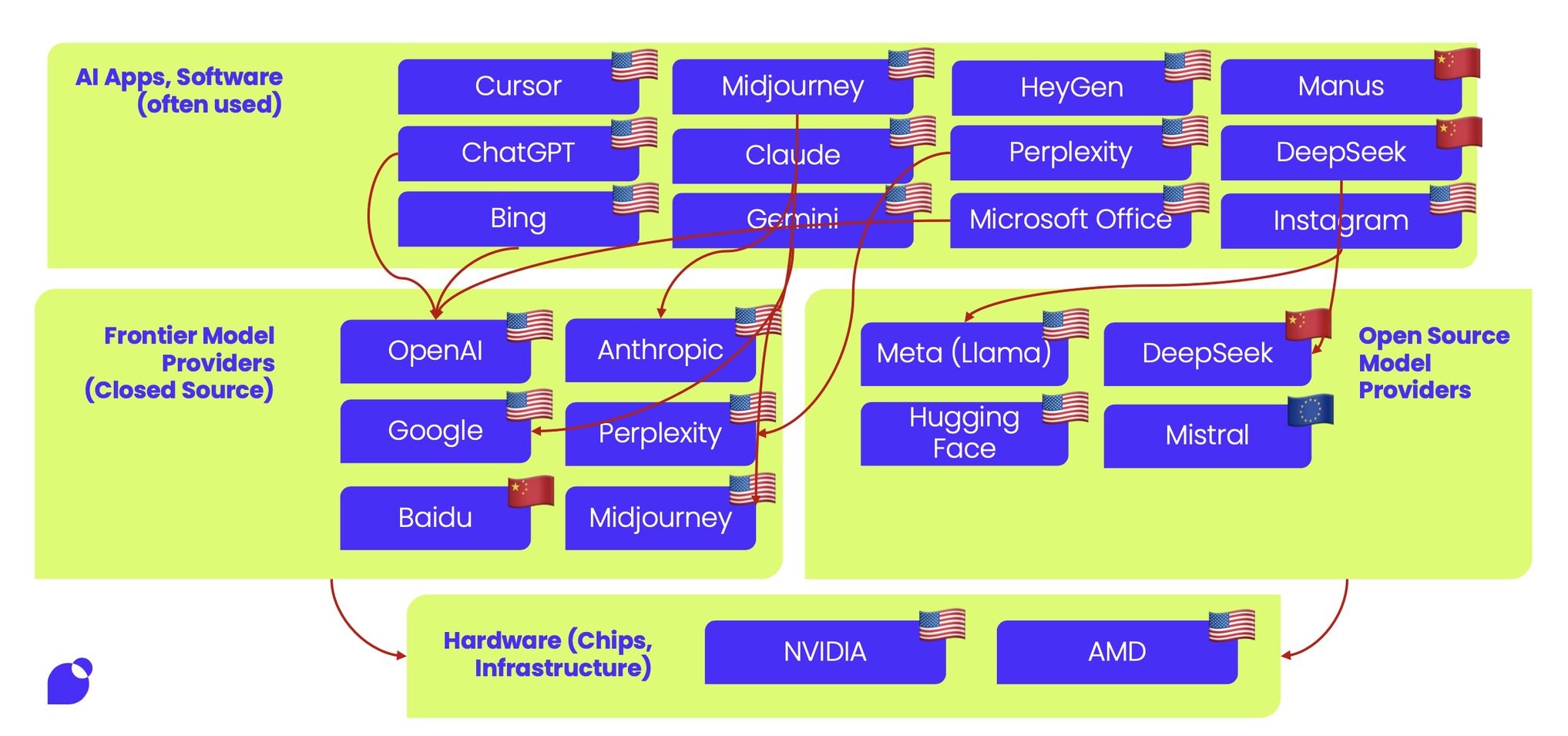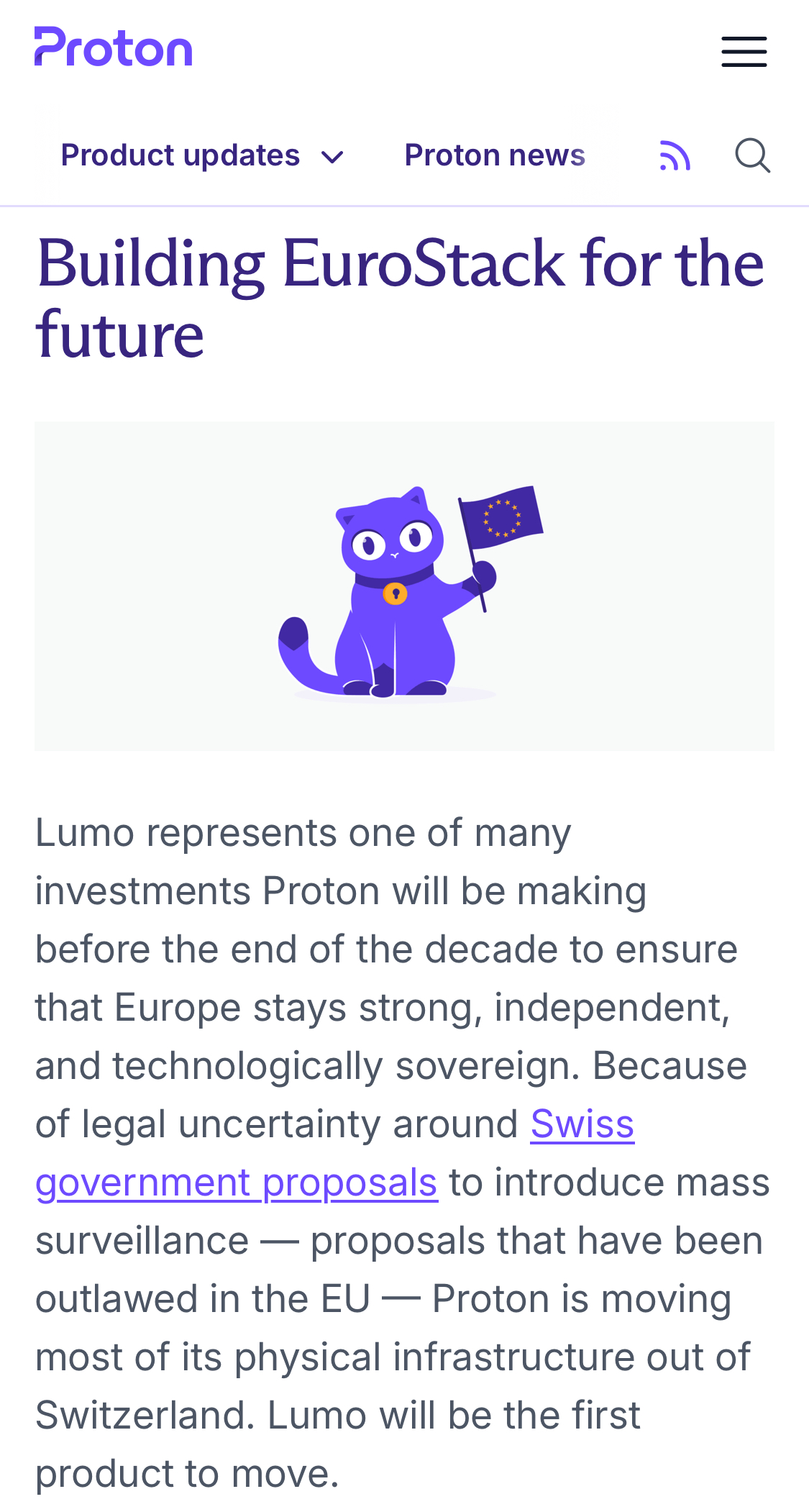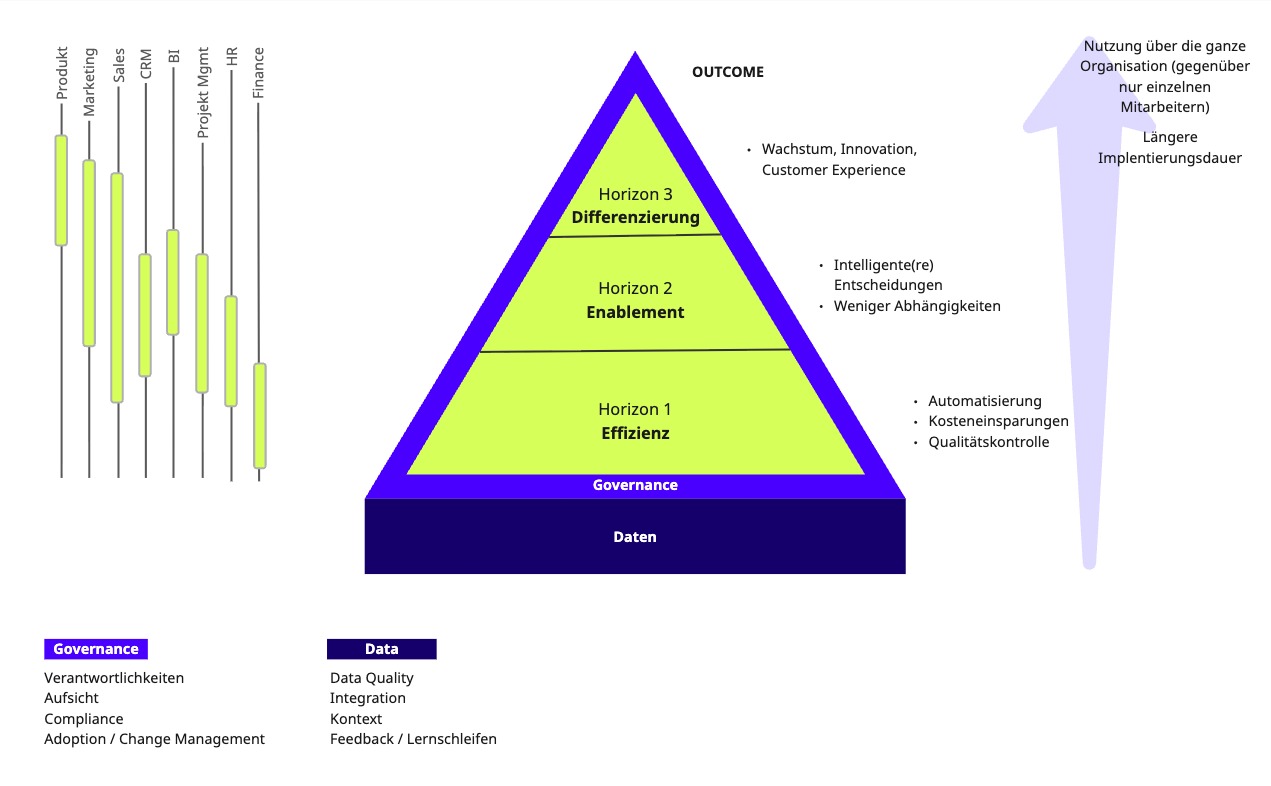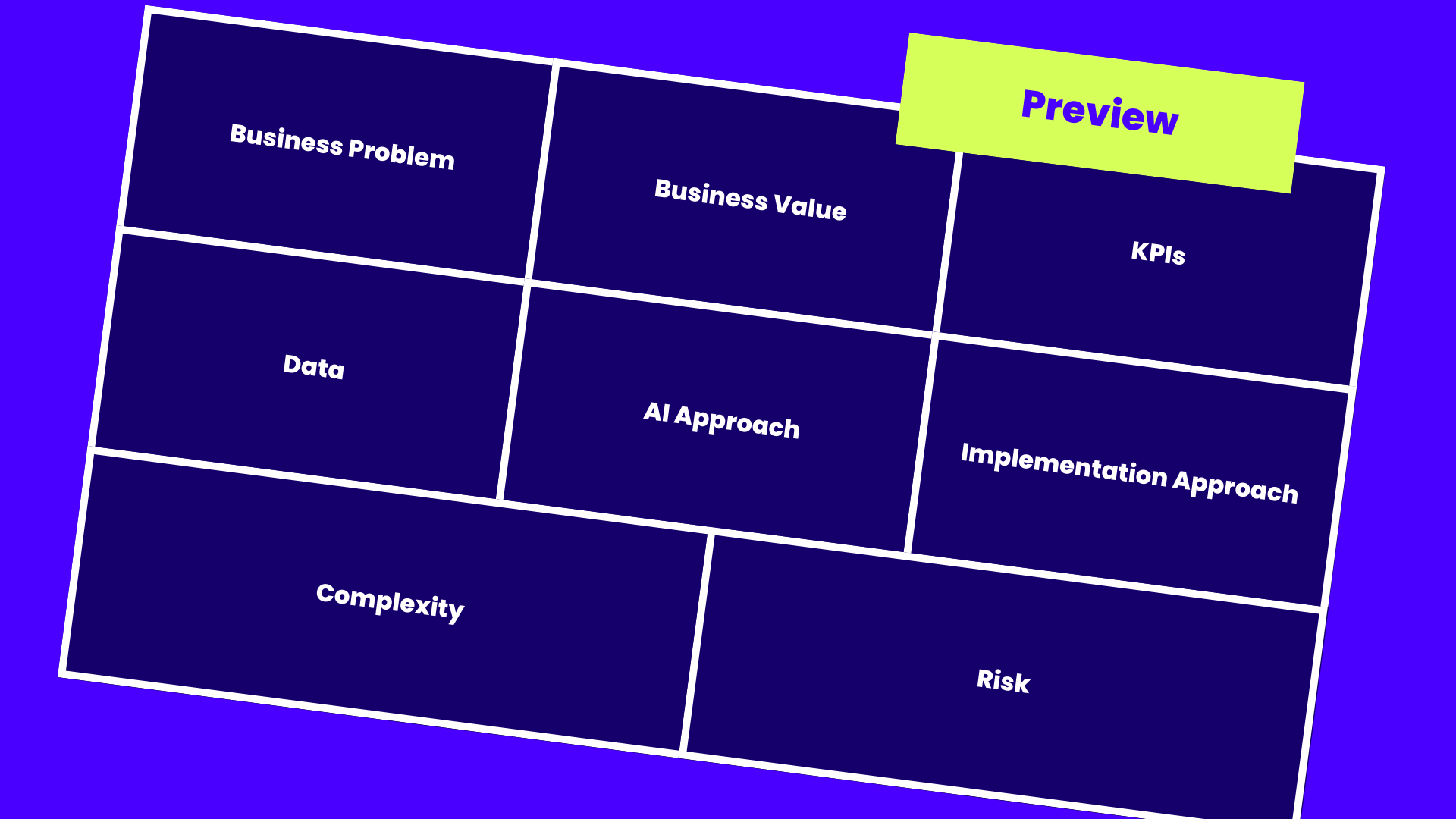AI Infrastructure Is Geopolitics

AI is geopolitics. And infrastructure currently moves faster than regulation.
Last week, Switzerland’s privacy-first email provider Proton launched their own AI chatbot, cutely named “Lumo”. But the real headline was buried further down in the announcement:

Proton's announcement about moving AI infrastructure to the EU due to Swiss regulatory uncertainty
Proton is moving its infrastructure out of Switzerland.
Reason: “uncertainty around Swiss government proposals to introduce mass surveillance”.
Wow.
Their AI stack (including their other products) will be hosted in the EU. According to Swiss Info, over €100M is being invested in this European infrastructure, mainly in Germany and Norway.
Why This Matters More Than You Think
Take a look at the AI landscape from any recent industry analysis. Most leading apps, models, and chip providers are either US-based or Chinese companies. Mistral being one of the exceptions to this rule.
Switzerland could have been, or could still be, a neutral, privacy-forward AI infrastructure hub. But the direction of regulation matters. And Proton clearly doesn’t believe it’s the right direction.
When a company built entirely on Swiss privacy principles abandons Switzerland, that’s not just a business decision. It shows how AI governance will reshape where companies can operate.
The Trade-offs Are Coming
My prediction: as AI platforms expand across more IT functions and use cases, business leaders will face new geopolitical and jurisdictional trade-offs:
- Where is your AI hosted?
- Under which law?
- And how fast could you move if needed?
None of this is new, but in the current geopolitical climate and with many AI laws in draft state, it’s a good idea to think about these trade-offs.
The Proton case shows that even expertise in navigating complex regulatory environments doesn’t guarantee stability. If Switzerland (neutral, stable, privacy-focused Switzerland) can spook a privacy company into a €100M infrastructure move, what does that mean for your AI strategy?
What You Need to Do Now
First, map where your AI systems are actually hosted. Many companies discover they have AI tools scattered across multiple jurisdictions without realizing the implications.
Second, understand which laws govern your AI infrastructure today—and which proposed regulations could affect you tomorrow.
Third, build optionality into your strategy. The goal isn’t to predict exactly how AI regulation will evolve, but to maintain flexibility as it does.
The regulatory landscape is shifting faster than most companies realize. What questions do you have about AI infrastructure and geopolitical risk?




